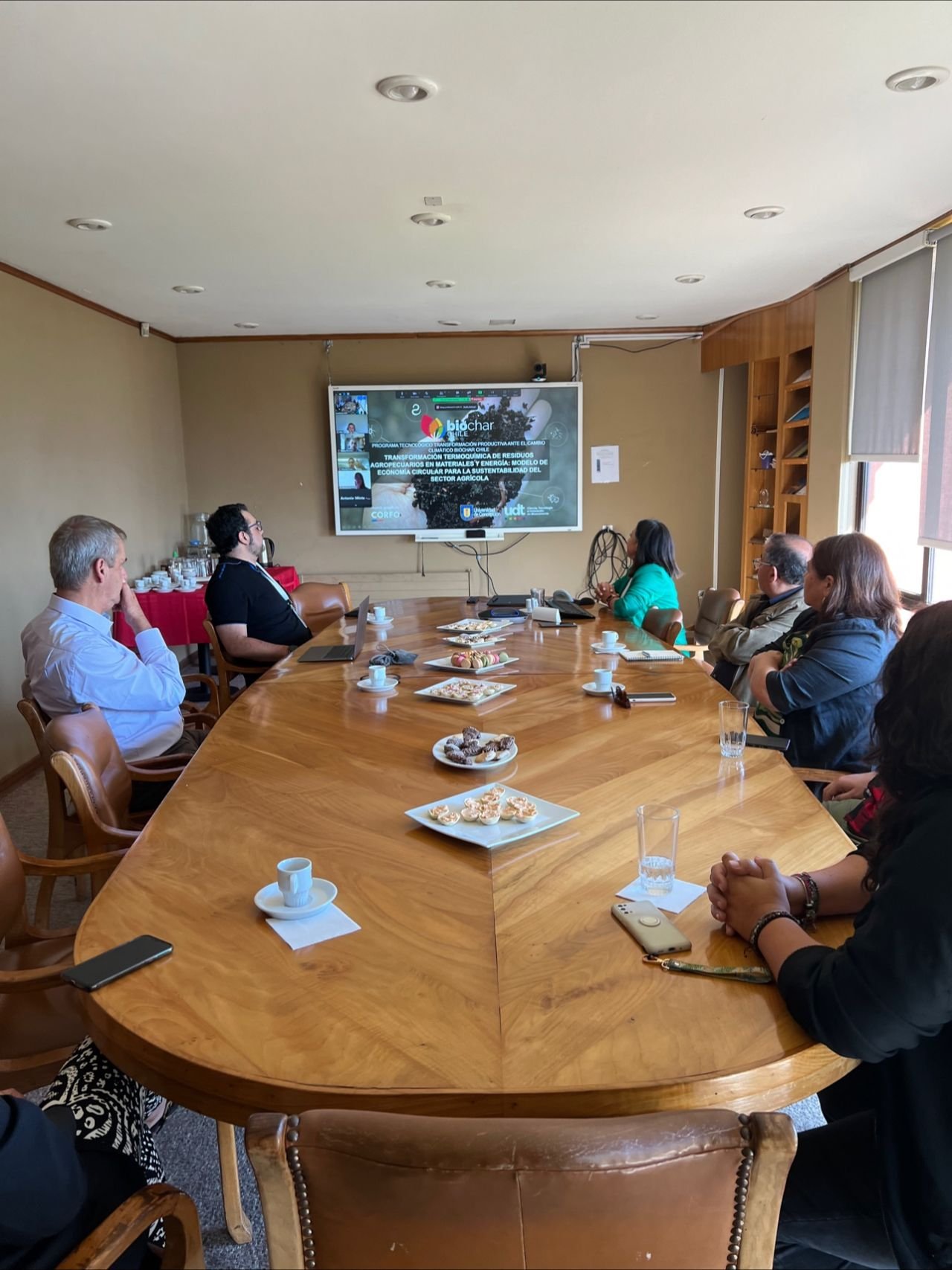Turning Waste into Wealth
Discover how PTEC Biochar Chile is redefining waste, turning it into a powerful ally against climate change and a boon for soil health
Source: PTEC Biochar Chile
Yesterday, we joined the inaugural meeting for PTEC Biochar Chile, a landmark project advancing sustainable development and the circular economy in Chile. This pioneering venture is looking into the "Thermochemical Transformation of Agricultural Wastes into Materials and Energy: A Circular Economy Model for the Sustainability of the Agricultural Sector,".
The kick-off meeting brought together an esteemed gathering of researchers, corporate partners, and representatives from OTL UDEC UDT - Universidad de Concepción, underlining the collaborative nature of this project.
The PTEC Biochar Chile initiative is set to revolutionize agricultural practices by transforming organic and non-organic waste into Biochar, a carbon-rich product that not only captures carbon effectively but also enhances soil health. By turning waste into a resource, the project embodies the essence of a circular economy, reducing the CO2 footprint and promoting sustainable land management.
As Associated Partners, we are tasked with conducting the Economic Sustainability Study, evaluating the monetization potential of Biochar's carbon capture capabilities through Carbon Credits.
With over USD 2M in funding from CORFO and a project duration of five years, it is set to streamline the construction, operation, and optimization of the pyrolysis plant. This venture is more than a project; it's a pledge to support farmers, enhancing their yields while contributing to a greener planet.
The path towards sustainable agriculture and carbon neutrality is challenging, yet filled with opportunities, and through collaboration, innovation, and shared vision, we are confident that the PTEC Biochar Chile project will serve as an example of sustainability and circular economy principles.
#SustainableDevelopment #CircularEconomy #Agriculture #CarbonNeutrality #Innovation #Collaboration #PTECBiocharChile #Sustainability #Biochar #CarbonCredits


